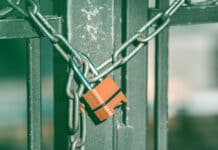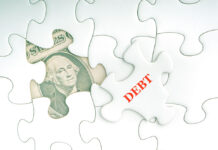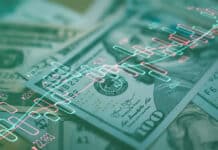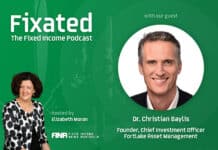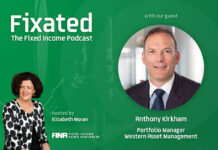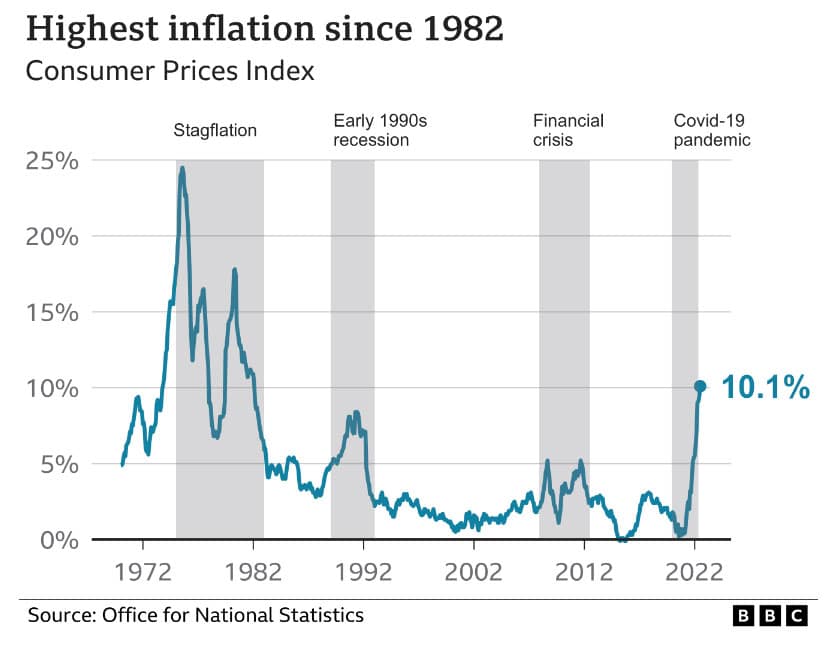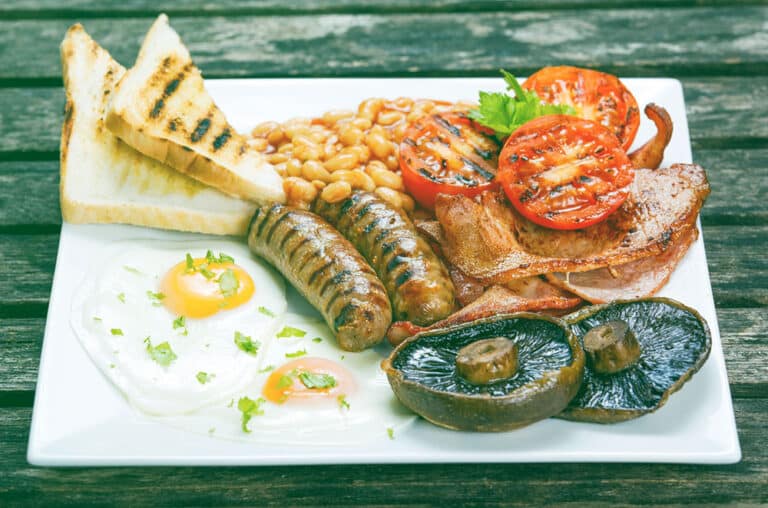
The cost of a traditional English breakfast fry-up has jumped reflecting soaring inflation in the UK as the annual inflation rate hit 10.1 per cent this week.
The Office for National Statistics said the consumer price index rose from a reading of 9.4 per cent in June driven by rising prices for food and fuel.
The new inflation figure was the highest since February 1982 and only the fourth time in 70 years that the figure has gone beyond double figures.
According to the ONS, restaurant and hotel prices rose by 9 per cent in July, the fastest annual increase on record.
Bloomberg’s monthly Breakfast Index shows the average price of a traditional full-English breakfast – with key inclusions consisting of sausages, bacon, beans, eggs, bread, butter, tomatoes, mushrooms, milk, tea, and coffee, has leaped by nearly 17 per cent from a year ago.
Food prices are contributing more to rising inflation than heating costs, though that may change as Britain’s cap on household energy prices is set to rise.
Also read: Argentina Inflation Rate Hits Two-Decade High
Among G7 nations the UK has the highest inflation rate. Prices are rising faster than in the United States (8.5 per cent) and the eurozone’s largest economies: Germany (8.5 per cent), France (6.8 per cent) and Italy (8.4 per cent).
Prices also rose for other staples, such as toilet rolls, pet food and toothbrushes.
Transport costs were another factor, with airfares and international rail tickets particularly increasing. The price for package holidays also rose, as demand increased.
Investors sold down UK government bonds pushing yields higher in response to the inflation news.
The yield on the UK’s benchmark 10-year bond moved up to 2.242% from 2.137% on Tuesday.
Investors tend to sell government bonds when they expect a country’s central bank will need to further raise interest rates to tame inflation.
The Bank of England has tipped that inflation could reach 13 per cent and would put the country on course for a recession that could last more than a year.

